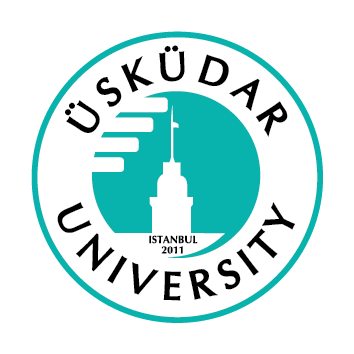Article
Makale
Milenyum Kuşağının Gelişiminde Sosyal Katılım ve Sosyal İyi Oluş
Social Involvement and Social Well-Being in Attainment of Millennial Flourishing
Steven A. Taylor,Hulda Black,Leigh A. N. Donovan,Kimberly Judson
Year 2015, Issue 6, Pages:126-141
Özet
Son zamanlarda insan gelişimi ve iyi oluşunu işletme bölümlerinin müfredatının temeli olarak konumlandırılmasına yönelik talepler dile getirilmişir. Bu taleplere rağmen, eğitim uygulamalarının, iş eğitimi ve piyasalaştırma üzerine yapılan vurgunun aksine gelişim ve refah odaklı olmaya yoğunlaşacak şekilde nasıl evrileceği işletme eğitimcileri için belirsizliğini sürdürmektedir. Bu çalışma, ampirik olarak akademik başarı, sosyal katılım ve öznel iyi oluşun üniversite işletme öğrencilerinden oluşan milenyum kuşağının gelişimiyle ilişkili olduğunu göstermektedir. Elde ettiğimiz sonuçlar, algılanan gelişim hedefini gerçekleştirme durumunun sosyal katılım ile sosyal iyi oluş arasındaki doğrudan ilişkiye tam olarak aracılık ettiğini ortaya koymaktadır. Bu ise şu anlama gelmektedir: öğrencilerin daha fazla sayıda sosyal faaliyete dâhil edilmesinin tek başına onların iyi oluş düzeyine katkıda bulunma olasılığı düşüktür. Elde ettiğimiz sonuçlar, yükseköğrenim öğrencilerinin iyi oluşunu arttırmanın en etkili yolunun sosyal faaliyet ve davranışların gelişmeye ilişkin hedeflerle uyumluluğunun sağlanması olduğunu göstermektedir. Yükseköğrenimde hâlihazırda benimsenen geleneksel değer sağlama ve satışa odaklanma yönteminin yerine, gelişime yapılacak vurgunun milenyum kuşağıyla gerçeğe dönüştürülebileceği görülmektedir. Araştırmada elde edilen sonuçlar, algılanan gelişim hedefini gerçekleştirmenin sosyal katılım ile sosyal refah arasındaki doğrudan ilişkiye tam olarak aracılık ettiğini ortaya koymaktadır.
Anahtar Kelimeler: Gelişim, İyi Oluş, Sosyal Katılım, Akademik Başarı


Abstract
There have been recent calls for positioning human flourishing and well-being as foundations for business school curriculum. Despite these calls, specifically how to evolve educational practices toward a greater focus on flourishing and well-being as opposed to a focus on job training and other marketization emphases remains a conundrum for business educators. The current research empirically relates academic achievement, social involvement, and subjective well-being to the flourishing of a millennial cohort of university business students. Our results demonstrate that self-perceived flourishing goal achievement appears to fully mediate the direct effect from social involvement to social well-being. This implies that simply involving students in a greater number of social activities alone will likely not contribute to their well-being. Rather, our results show it is the congruence of social activities and behaviors with their flourishing-related goals as the most efficacious path to increasing student well-being in higher education. We are able to show that an emphasis on flourishing in higher education instead of the current and traditional method of focusing on value delivery and sales (i.e., marketization) appear reasonably achievable with the Millennial cohort. Results indicate that self-perceived flourishing goal achievement appears to fully mediate the direct relationship from social involvement to social well-being.
Keywords: Flourishing, Well-Being, Social Involvement, Academic Achievement